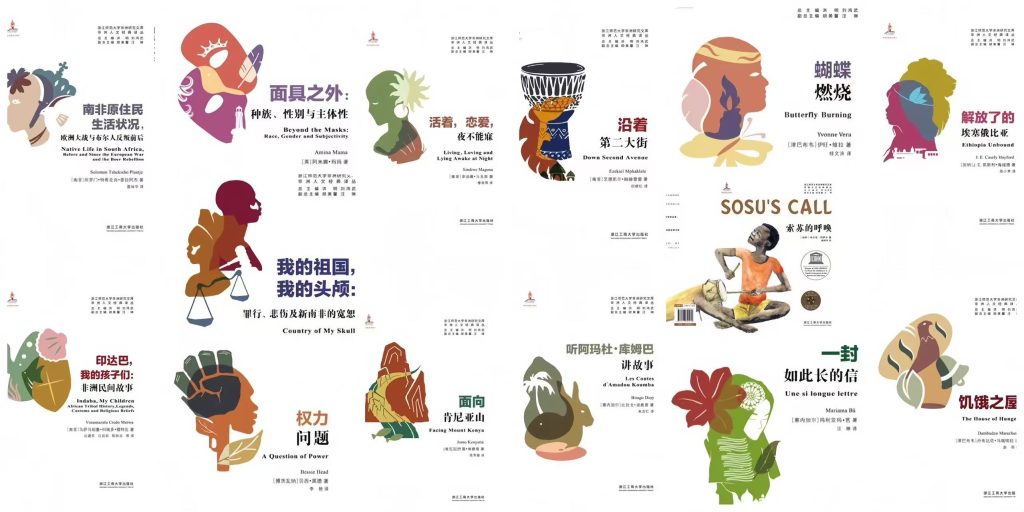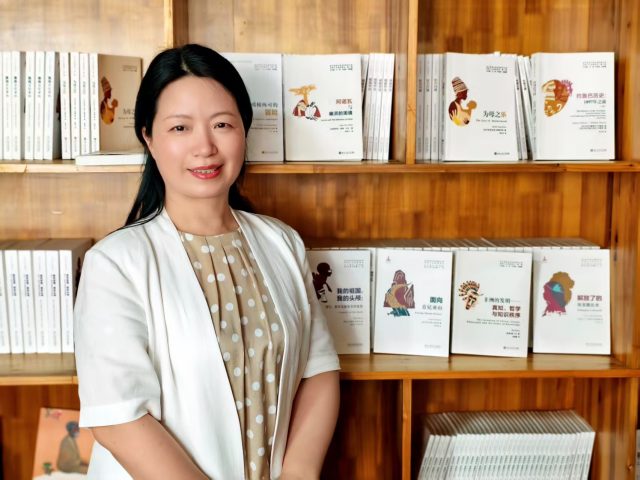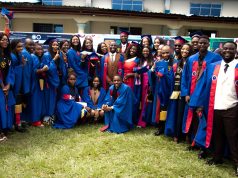IKENNA EMEWU
A huge project is underway at Zhejiang Normal University in south-east China.
This was revealed by the Dean of the College of International Languages, Prof. Hu Meixin, during an interview with ACE Magazine in her office.
Hearing this was a huge surprise and of course it is the first of such huge task to deepen Africa and China relationship from the intellectual perspective.
Prof. Hu narrated that her realisation and that of her College that the Chinese, even in the academic and intellectual circles that would be regarded as well informed, don’t actually know much about Africa raised the need for this mega project that is translating 100 books at a time. These books are all authored by Africans, and there is a reason the focus is on those works documented by Africans about Africa.
I understand that you have a close relationship with the Institute of African Studies of this university (IASZNU), can you give us details of this?
My relationship with the institute is rather the relationship of my College and not about me as an individual.
I relate with the institute as the Dean of the College of Foreign Languages and also as a co-researcher at the Institute of African Studies. In addition, I am the leader of my College in the collaborative effort with the IASZNU. I have three roles: the dean here, a researcher, and I lead my team in our joint team at the Institute.
This College started with the institute in 2007 when it was founded. That was the year Prof. Liu Hongwu came to this university to lay the foundation of IASZNU as an independent institute.
I have watched how my colleagues changed from their confusion about what Africa is, what would be known about Africa, how nothing literally was known about Africa, to a continent many people embrace studying in-depth about from so many intellectual perspectives.
For instance, in this College, we have done so much work translating a lot of works by Africans about Africa, and do much more research about African studies, and do more work on the cooperation between Africa and China.
We also organise teamwork in the university on topics related to Africa in areas such as linguistic studies, historical studies, political studies, and many more. I have witnessed the change of attitude of fellow scholars in the College and university from the very beginning of our efforts to evolve this study area. So it has been dramatic and commendable in the past close to 20 years.
From your experience, has the presence of IASZNU made any impact on the understanding of Africa, especially as a field of study in China?
So much. The impacts have been awesome and beyond imagination. The various works have engendered a wonderful growth in the understanding of Africa in so many areas of study – history, culture, economy, society, the people, literature, philosophy, politics and its relations with other parts of the world.
I give you a typical instance from the Japanese language department in this College. Japan had worked with African countries for years at the government level. The country acquired much literature on that. So, we organised a translation of books on what the Japanese government has been doing in Africa into Chinese. These targeted individuals know their experiences and what we can learn from them. We needed valuable inspirations that we could draw from. These gave us insights into the rules, regulations and policies they created and pursued to actualise their diplomatic objectives. We also examined how they evaluate and assess their commitment in those projects targeted at Africa and African relations. Our team wrote a report of their findings on these Japanese policies from the translated books and presented it to the government.

The recommendations were accepted warmly, got funded and implemented with so much government support. I know that China’s central government did well in learning from some countries, including the Japanese example on how to relate better with African countries, and today, I think they have even surpassed those countries because they started by making sure to avoid whatever pitfalls of those other countries in relating with Africa. I am sure this information will help in taking the China-Africa relationship on the sure path. It might interest you to know that today, Japanese language students in my College have also started research in African studies. That is quite interesting and never before envisaged until IASZNU came on board. They have also, through their interests, found the potential in Africa both as a subject of research and as a place that is worth knowing and focusing on for studies.
Are there more specific areas of focus of your College in furthering the quest to know Africa here in China?
Still under this platform of the Institute, the English and French departments have handled a huge project in translating books about Africa, mainly written by Africans in all spheres of life. It is called the 100 best books from Africa. These books are written by African scholars, not those from Europe or the West, who choose on behalf of Africa from their perspective. We wanted it to be as genuine as a real African project targeted at getting the best out of Africa from the viewpoint of what we intended to achieve. The scholars we used in the selection are people from Africa, some of them born outside Africa or living outside Africa, but purely and completely African people. These translations into Chinese are still ongoing.
In the course of executing this project, we faced a lot of difficulties with publication. We didn’t have enough money to handle it. So I contacted a lot of publishers who turned it down because it didn’t have economic potential for them. Next to that, they were not convinced that we had the determination and every other thing it takes to finish such a large and capital-intensive project. So I had to find a smaller publisher with an equally smaller budget. With these books out, my team and others came to understand so much about Africa by reading these works.
My experience in the depth of the work and assignment around the project is from a book, Invention of Africa, written by a Congolese scholar, Mugambe. I have to admit to you that the work was quite taxing and tedious. Sometimes, I can’t finish a page in a whole day untangling the loads of philosophies, histories, and some local nuances that are mainly understandable to someone who is rooted in the culture of the environmental setting of the book. But no matter how challenging it has been, it has exposed my team to understanding African literature in the context of the African writer.
These are aspects of knowledge about Africa in its history, culture, philosophy, political ideas, etc we never had earlier. By closely reading all these works from different countries and authors, the team of experts and translators started getting a better glimpse of what the continent of Africa is like. It had at one point been reduced to specific countries. One did a translation of the work of a female author from Senegal. Some translated works from Nigeria, some works from South Africa and so on. So they got immersed in real African research in literature. One of them even verged into African arts research because she translated a book on African art history into Chinese. One even did a translation and research into the history of the diplomatic relations between China and Mali.
Eventually, these people have become committed scholars on Africa and have learnt a lot about the continent they didn’t know anything about prior to this project. You can see how what would be seen as just ordinary translation has opened a different vista to several Chinese scholars becoming experts and informed persons about the depths of African ways of life and general background and away from the old wallowing in ignorance of what Africa is made of or seeing the continent from the eyes of the writings of other people, especially the West for their interests.
We have someone in linguistic research who tries to use discourse tools and theories to apply to Africa, deriving from the particular work she handles. Another work focused on the African media and its perception of China, especially magazines, daily publications and the broadcast media, in fact, somehow into social media content. These served as windows to what is currently happening in African countries as it relates to China, and the history of Africa’s relationship with China.
We have uncovered a lot of dividends from this assignment, and also produced a lot and series of publications from this task. The works were presented at the national level through platforms as the China Africa Think Tanks Forum in Beijing. Leaders of the foreign ministry were there at the event and impressed with the work that scholars are actually using their tools and knowledge to bring to their attention what the foreign countries, mainly in Africa think or feel about their works to sustain cooperation with the African countries.
Your explanation is quite amazing. So, are there other benefits to your College through this commitment? Are more students and scholars showing interest and joining the project?
The intangible and invisible aspect of the gains is the willingness and enthusiasm to know Africa more, rivet research interest on Africa, which was never the case earlier.
Today, rather than seeing Africa from the works and writings of the West, our scholars and the Chinese audience that read these translated African works are only out to perceive Africa from the point of view of African writers through literature, newspapers, magazines, broadcast, social media content, etc. These are the two aspects of the advancements and gains we have made – the visible and invisible mileages.
In another milestone, in 2020, we applied for approval for a doctoral degree project in foreign language and literature with a slant for Africa. But it was quite competitive because up to 27 universities applied, and not all will be taken. Prior to this, we had been applying for and getting grants and support for a master’s degree, but not a doctorate. It is only one of the submitted applications that will be approved. Due to this competition, we had to leverage our advantage of having an Institute of African Studies and co-applied with the institute. Eventually, it worked because the African Studies Institute did its best and with its pedigree to convince the team of experts in its voting to sway the decision in our favour among other contenders.
This was not IASZNU project, but its presence and influence convinced the voters to resolve the decision in our favour. We saw the importance of supporting co-feature projects and Area and country-specific research targets, propounded and championed by the institute here in the university.
Because we have this institute, we incorporate more African content into our research work, like translation and so on. The result is that our students enjoy some advantage in approvals, the deepening of their knowledge and the actualisation of their dreams. Every year in our studies and works, we get more topics and more students in both MA and PhD – in literature, linguistics, languages and Country and Area studies focusing on African literature, and writing and social levels.
What about the first or bachelor’s degree level? So far, your instances have been on postgraduate scholarships. Any openings there?
Presently, we also have an increasing number of undergraduate students enrolling in the experimental class of African studies. We have, in the past several years, had an average of 25 students in this field enrolling. In fact, we have more students expressing interest than we actually can take in our carrying capacity.
We have them from my College, and this is where the major gain of our effort is – having young students express more interest in African studies, an area hitherto untouched and a road earlier uncharted. That is where the assurance of sustainability stands out in the cooperation between China and African countries.
Another point of pride to me is that the first student to go through a first degree up to PhD with an inclination to African studies is a lady from my college, the Translation Department. She was selected for the experimental class in Area and Country Studies and sustained the effort up to her PhD. That is quite outstanding, and we are proud of her.
We had in the past sent students to Nigeria, South Africa and others for their fieldwork during the summer and winter vacations. Whenever they come back and write their reports, we are always impressed with their experiences and the depth of work they did while in Africa. In the reports, we find they really interact with society, teach Chinese, do some community service, partner with traditional leaders and engage in being part of the societies where they worked. These enabled them to contribute to the local governance of the societies they were part of during their fieldwork.
I believe that it is worth the time and effort for an undergraduate who travels out to Africa for study to have a feel of all the necessary experiences – be with the local people, immerse in the culture, witness their politics and governance style, the economy, the world views and even how they perceive of strangers and foreigners, including the Chinese.










